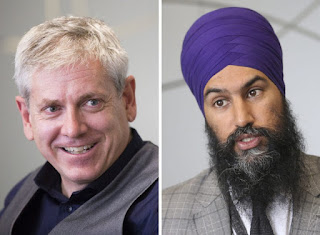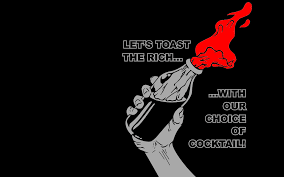This was the week Donald Trump clarified for whom he's working. Richard Wolf writes:
Twice this week, when given the choice between his wealthy buddies and the working Americans he claims to care about, Trump has taken the gold-plated path.
Take his big tax cut, the biggest ever in history (or so he says). When asked by the super-friendly Pete Hegseth (from the aptly named Fox & Friends) about who his tax cuts were intended to help, our populist hero jumped right in.
“Really, the working people. We say the working people, middle class, the people that really haven’t been treated right, Pete, and they haven’t been treated right, really, for a long time. They have not been treated right,” he began very earnestly.
But look at his proposed tax rates. The top tax rate will go from 39.6% to 35%, while the rate for the people at the bottom will go from 10% to 12%. Trump claims he is going to increase the tax free deduction, but he doesn't say what income levels apply to each bracket.
And then there was the matter of aid to hurricane ravaged Puerto Rico. The Governor of the island and the mayor of San Juan have been pleading for help. But The Jones Act prevented ships from delivering that aid. The Jones Act was waived immediately for Texas and Florida. But it stayed in place for the island. Why?
“Well, we’re thinking about that but we have a lot of shippers and a lot of people who work in the shipping industry that don’t want the Jones Act lifted,” [Trump] told reporters on the South Lawn of the White House on Wednesday.
After thinking some more, Trump reversed himself on Thursday, more than a week after Puerto Rico lost its power grid and struggled to secure anything like adequate fuel supplies.
It is phenomenally hard to understand the thinking of a commander-in-chief who places the interests of shippers over his own citizens in dire need.
And the poor working stiffs who voted for him keep insisting they have a friend in the White House. Trump has friends. But working stiffs don't run in Trump's circle.
Image: The Huffington Post




























